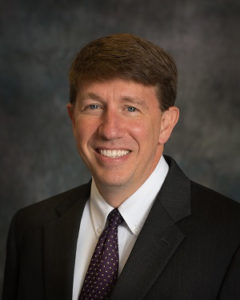By Edward H. Trent
On August 15, 2019, the Department of Labor’s Office of Federal Contract Compliance Programs (“OFCCP”) issued proposed regulations updating the definitions section of 41 CFR Part 60-1 “to clarify the scope and application of the religious exemption contained in section 204(c) of Executive Order 11246, as amended.” The goal of the new regulations is to provide clarity to religious organizations and institutions when it comes to applying for government contracts. While some have already claimed that the new regulations will legalize discrimination against those who identify with the LGBT community, OFCCP maintains that the regulations merely ensure that the long-standing Executive Order designed to implement Title VII in the area of federal contracts remains consistent with Supreme Court precedent protecting religious freedom.
HISTORICAL OVERVIEW AND THE OFCCP’S CONCERNS
One year following his signing of the Civil Rights Act of 1964, President Lyndon B. Johnson issued Executive Order 11246 requiring equal employment opportunities in federal government contracting. While religion and sex protections were omitted from the original order, President Johnson corrected this omission two years later. As the preamble to the proposed regulations states: “because the [religious] exemption administered by OFCCP springs directly from the Title VII exemption, it should be given a parallel interpretation.”
In support of the clarifying definitions, the OFCCP references several recent Supreme Court decisions. One case is Trinity Lutheran Church of Columbia, Inc. v. Comer, a 2017 decision where the Court held that the State could not preclude a church pre-school from participating in a State grant program for playground equipment just because it was a religious institution. The Court held that the State violated the Free Exercise Clause by conditioning a generally available public benefit on an entity giving up its religious character. Another is the Court’s 2018 decision in Masterpiece Cakeshop, Ltd. v. Colo. Civil Rights Comm’n, where the Court held that a State may not make decisions based on hostility to religion. These broad religious free exercise protections, however, raise the question on who qualifies for the religious exemptions under E.O. 11246 and under what circumstances.
OFCCP expresses concern that organizations decline to participate in federal contract programs out of fear they would be required to sacrifice their religious identity to participate. This in spite of decades of court decisions holding that religious entities do not have to sacrifice their religious identity to participate in the marketplace. Indeed, the Third Circuit Court of Appeals (covering Delaware, New Jersey, Pennsylvania, and the U.S. Virgin Islands) held in 1991 that “the permission to employ persons ‘of a particular religion’ [as set out in Title VII] includes permission to employ only persons whose beliefs and conduct are consistent with the employer’s religious precepts.” Similarly, the Sixth Circuit Court of Appeals (covering Tennessee, Ohio, Michigan, and Kentucky) held in 2000 that Title VII protects “the decision to terminate an employee whose conduct or religious beliefs are inconsistent with those of its [religious] employer.”
THE PROPOSED REGULATIONS
The proposed regulations are relatively brief but clear that the religious exemption is to be given “broad interpretation.” The regulations add definitions of “Exercise of religion,” “Particular religion,” “Religion,” “Religious corporation, association, education institution or society,” and “Sincere.” “Religion” is given the same definition as in Title VII, specifically that it “includes all aspects of religious observance and practice, as well as belief.” This protects both the employer and the employee. Likewise, “Exercise of religion means any exercise of religion, whether or not compelled by, or central to, a system of religious belief. An exercise of religion need only be sincere.” This keeps a court from determining the importance of a religious precept or its application. Additionally, “[a]s the Supreme Court has repeatedly counseled, ‘religious beliefs need not be acceptable, logical, consistent, or comprehensible to others in order to merit First Amendment protection.’” The definition of “particular religion” includes the provision that the religious employer can include “acceptance of or adherence to religious tenants as understood by the employer as a condition of employment.”
This still does not answer the question of who qualifies to claim the religious exemption. To address this question, OFCCP includes a definition of “Religious corporation, association, educational institution, or society,” which is determined based on three criteria. First, the entity “must be organized for a religious purpose, meaning that it was conceived with a self-identified religious purpose.” The entity does not need to have an exclusively religious purpose, as defined by the employer, but such a purpose must be clear either as expressed in its articles of incorporation, its advertising, its website, or some other means. Second, “the contractor must hold itself out to the public as carrying out a religious purpose.” Similar to evidence of the first criteria, such a religious purpose must be evident to the public in advertising, corporate philosophy statements on its website, and other considerations. Third, “the contractor must exercise religion consistent with, and in furtherance of, a religious purpose.” This may be in the way it operates its business, the kinds of activities it supports, or other means to establish it does more than pay lip service to a religious identity.
While no for-profit company is specifically identified as a “religious corporation” in the proposed regulations, the Supreme Court held in 2014 that Hobby Lobby was able to exercise religion. In doing so, the Court did not address the issue of whether Hobby Lobby was a “religious corporation” under Title VII or any federal regulation. Accordingly, given the breath of the proposed definition of “religious corporation,” the issue of who qualifies as a religious employer and entitled to the religious exemption is the greatest point of contention.
The potential expansion of who constitutes a religious employer has some complaining that the regulations go too far, while others champion the clarification maintaining that just because one opens a business does not mean the business owner must sacrifice or violate his or her religious convictions. Churches, religiously affiliated schools and non-profits clearly fall within the protections and are not required to hire or retain employees who do not support the religious principles of the organization. While there are those who believe that all organizations should be required to abide by all federally mandated non-discrimination provisions without exception – even if those provisions violate the organization’s religious teachings – the Supreme Court has made it clear that religious institutions have special protections when it comes to those who carry out its activities. For example, Catholic Charities should not have to hire and retain an employee who opposes or violates its religious teachings just to qualify for a government contract to provide needed services to immigrants.
The broader question is whether a for-profit business whose primary economic activity is not “religious” by nature can claim to be a religious employer under the criteria referenced above. While Hobby Lobby sought an exemption from having to provide certain forms of contraception that violated its owners’ religious beliefs, the question remains whether Hobby Lobby or any other business could qualify as a “religious corporation.” If so, the chorus of objections will rise with the refrain that the exemption is nothing more than a “license to discriminate,” presumably against those who identify with the LGBT community. The issue of whether an employer has a religious exemption from retaining an employee who announces that the employee will undergo a gender transition was raised and rejected by the Sixth Circuit in EEOC v. R.G. & G.R. Harris Funeral Homes, Inc. in 2018. While this case is before the Supreme Court this fall, the issue of the funeral homes’ religious objections to an employee appearing and dressing as a member of the opposite sex is not before the Supreme Court at this time. Yet, that is clearly one of the fears of those who oppose these regulations.
CONCLUSION
Both sides of the debate will find aspects of the regulations to support their arguments. There is obviously some tension when it comes to balancing the rights of employers to operate their business in accordance with the employer’s religious beliefs and the rights of an employee to be free from discrimination as provided by Title VII and E.O. 11246. Title VII and numerous court opinions address both protectable interests and often the balance comes down to whether the employer is a religious employer. Accordingly, while the regulations do clarify the scope of the religious protections given to religious organizations and entities created for a religious purpose, just how far the courts and future administrations will go when it comes to deciding whether a particular business qualifies as a “religious corporation” remains anything but clear.

Wimberly Lawson Wright Daves & Jones, PLLC
Knoxville, Tennessee office
etrent@wimberlylawson.com
